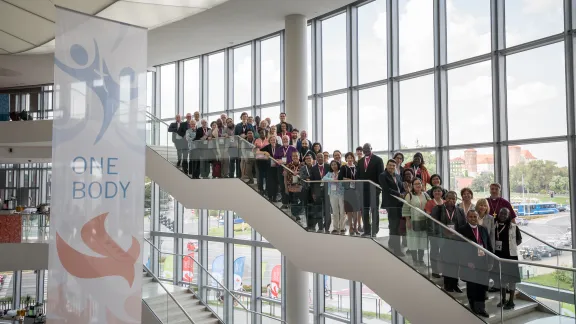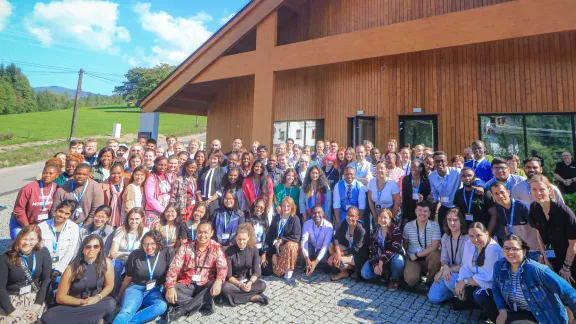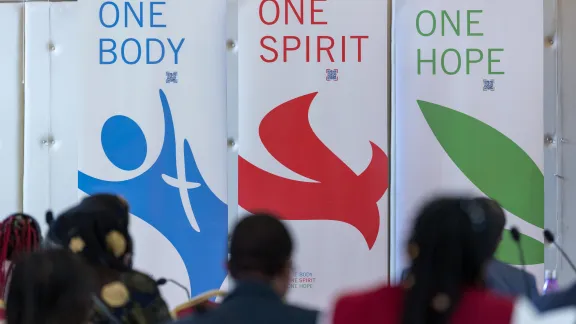Africa: Pre-Assembly message highlights unity, peace, and education
Churches in Africa commit to “focus on what unites us, not what divides us” as they affirm priorities for addressing political, religious, social and economic challenges on the continent.
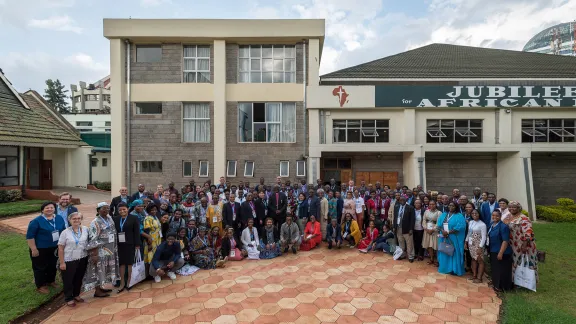
Lutherans from across the continent of Africa at the Africa pre-assembly. Photo: LWF/Albin Hillert
Pre-Assembly in Nairobi concludes with commitment to address root causes of conflict and violence
(LWI) - Africa is a deeply “religious continent” and religion is “integral to Africa’s self-understanding,” as well as to “the moral orientation of its peoples.” In this context, the African churches have a crucial role to play in tackling the political, economic, ethnic and social challenges that cause conflict and polarize people and communities.
At the conclusion of their Pre-Assembly in Nairobi, Kenya, African member churches of the Lutheran World Federation (LWF) drew up a message outlining priorities for the region and calling on each other to “focus on what unites us, not what divides us.”
Reflecting on the theme of forthcoming LWF Thirteenth Assembly in Krakow in September, ‘One Body, One Spirit, One Hope’, the church leaders committed themselves to cooperating with governments, ecumenical partners, civil society organizations and the global Lutheran communion to promote peace and reconciliation.
The delegates also urged the member churches to “work together for conflict resolution, peace, and reconciliation, to stand with churches exposed to violence and terrorism or internal challenges, always addressing the root causes of conflict and violence.”
Empower women and youth, support education
Participants observed that more than 85 percent of people in Africa identify as religious and belong to religious organizations. The continent, they said, is “blessed with natural and human resources,” yet despite progress in many spheres, its nations continue to face serious challenges. These include the misuse of religion, as well as economic and political crises, bad governance and abuse of power, inadequate education, failing health services, decaying infrastructure, harmful traditional practices, sexual and gender-based violence, irregular migration and trafficking, insecurity and terrorism, climate change, human rights abuses and inequality.
To meet these challenges, delegates noted how religious leaders and faith communities have contributed to the development and implementation of the African Union Agenda 2063, titled ‘The Africa We Want’. At the same time, however, they underlined how religion has been commercialized and distorted “to justify oppression, exploitation, division and abuse.” They pointed to the ongoing case in Kenya where hundreds of people are believed to have died after being persuaded to fast to death by a cult leader.
In their message, delegates called on all member churches to support theological and pastoral education, focusing especially on the empowerment of women and young people in the church. Priorities include the requirement of gender justice studies in the curricula of theological institutes, opening up more training and leadership positions for women and youth, as well as implementing LWF quotas of 40 percent women, 40 percent men, and 20 percent young people “to ensure balanced representation across all structures of the churches.”
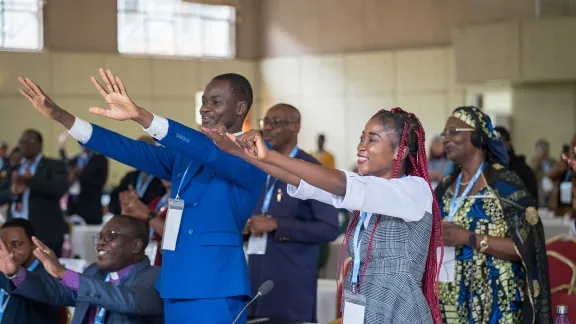
Participants dance and sing during worship at the Africa pre-assembly. Photo: LWF/Albin Hillert
Appeals to LWF and African governments
Alongside to committing themselves to greater inclusion of youth and women in the decision-making and leadership of their churches, delegates also called on the LWF to encourage all member churches to implement the required quotas and to facilitate the establishment of a network of theological institutes to enable sharing of resources. Furthermore, they appealed to LWF to “advocate for financing of climate change mitigation and adaptation initiatives by member churches” in line with the Paris Agreement.
Reflecting on reduced global funding for local development work, participants highlighted the need to strengthen the fundraising work of the Lutheran Development Agency in Africa (LUDAA), to foster an exchange of expertise among local churches and to “increase joint work mission undergirded by the ideals of Ubuntu [I am because you are].”
Finally, delegates also call on the governments in Africa to embrace “a culture of governance where resources are equitably distributed,” to ensure freedom of religion for all and to “empower religious communities to self-regulate against religious merchants.”
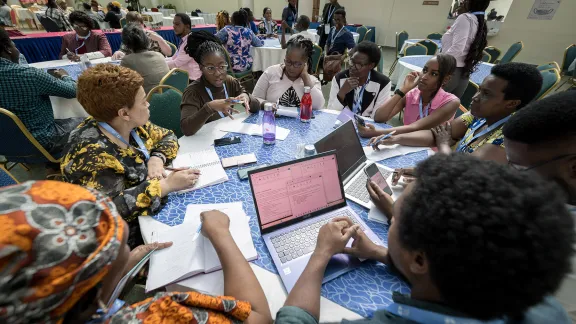
Cynthia Mimagu Harases of the Evangelical Lutheran Church in the Republic of Namibia shares a remark during group work at the Africa pre-assembly. Photo: LWF/Albin Hillert
LWF/P. Hitchen
